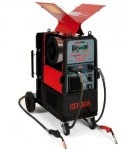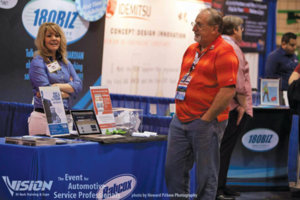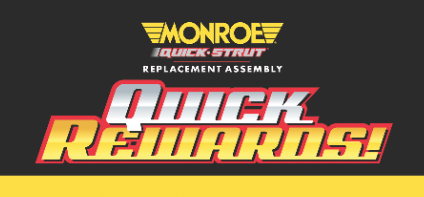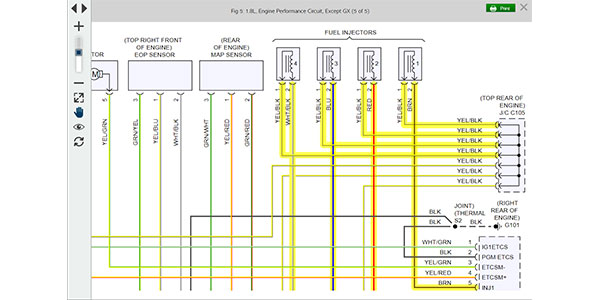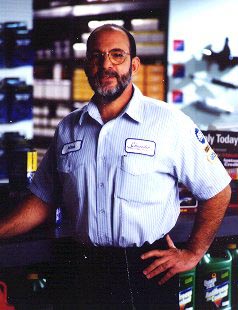
Contributing Editor
This column is all about YOU. It’s about your words, your thoughts, your feelings and what you had to say about a subject that’s not going away until you and I send it away. At its core, this is all about who we are and what we are all about: how we really feel about ourselves, each other and what we have chosen to do with our lives.
I won’t promise you unbiased, dispassionate or moderate: I can’t. My passion for this industry and the people in it is no secret. It’s documented, chronicled over the past 25 years. Besides, I can’t be objective about the problems you face as a professional, or that we face as an industry any more than a beat cop can be objective about street crime.
Just a few months ago (see November 2007 issue), I wrote about this industry being stuck in first gear with journeyman-level technician earnings documented by the Bureau of Labor Statistics at a median of less than $35,000 per year; $33,050 to be exact. While you could “optimistically” argue that this statistic reflects the fact that fully one-half of those individuals surveyed made more than $33,050, it just as clearly reflects that fully one-half made less.
These numbers were accompanied by research projecting the number of individuals in our industry who would soon be retiring, as well as a number for those who would be exiting for reasons other than retirement, and a formula that calculated the replacement cost of an experienced employee as a function of annual salary at 50% — any employee, any age, any industry.
Like the student who asked his economics professor what the difference between a “recession” and a “depression” was, and was subsequently instructed that it’s a “recession” when your next door neighbor is out of work and a “depression” when you’re the one who’s unemployed; the fact that we have to deal with what these numbers mean on the service bay floor on a daily basis makes it all very personal, something you made elegantly clear in your e-mails to me, e-mails just as powerful and disturbing as the problems we face.
It didn’t matter if you were the 16-year, CMAT–L1 veteran working for a large retail operation, who started his career washing cars and sweeping out service bays, sharing his frustrations about the lack of respect and inadequate compensation associated with a constant diet of vehicles that were misdiagnosed by other, inadequately trained and less-skilled technicians, working for the same company under the same banner. Or, the 51-year-old, anti-union, master-certified shop owner in Maryland whose body will no longer cooperate and who sees no other way to ensure a viable future for those who will follow us other than to unionize.
WORDS FROM THE HEART
The responses I received all shared the same desperate anger and passion. And, like the melody you can’t seem to get out of your head, each e-mail shared at least one element of a refrain that has become all too familiar to those of us who have been battling these problems for what seems like an eternity.
Because so many of us migrated from the shop floor to the office, because all of us have experienced the frustration and the rage, we understand. We are “all” the tech who walked away from this industry; the one, who at 40 went back to school at night, full-time for a year in order to pursue a career as a PC-LAN administrator because he had hit his “glass ceiling” in the service bay. And, why not? Who has a better understanding of computers interacting with each other, or with everyone and everything else, than we do? How different are the skill sets, how much “more” do you have to know in order to repair or reprogram that notebook or laptop computer?
From the very first time I ventured forth out of the shop to address the Equipment & Tool Institute in the Fall of 1984, my contention is, and has always been, pretty simple: if you can inspect, test, evaluate, analyze, diagnose and repair a late-model vehicle effectively and efficiently, you can do just about anything you want. And, just about “anything” will pay more, provide greater security and include better benefits with less wear and tear on your body!
Each of us is the technician I feared might leave the industry in 1984. The one who did leave a decade later. The tech who still misses the challenge, the business, the people, but who won’t shed a tear over the lack of adequate compensation, appreciation or recognition.
Our paradigms are dysfunctional, our models antiquated. Because there is no oversight, no organization and no structure, there is no consistency, no standards and no accountability. Performance-based pay — that assumes quality and effectiveness will be the natural result of “picking more strawberries” — has made the “Technician’s Earning Curve” an aberration. The first five years in the industry, the rate of compensation climbs almost vertically. With experience, training and the “right” tools and equipment, compensation can continue to increase, albeit modestly…until the body or the mind can no longer continue working harder or faster. Then, earnings are limited and when the seasoned veteran technician can no longer keep up the pace or compete with younger, less costly (and, perhaps marginally trained) replacements, that technician — and the knowledge he has acquired over a lifetime of service — is unceremoniously discarded.
The recurrent melody: Technicians don’t make enough because the shop owners won’t charge enough! The chorus: Shop owners “can’t” charge enough because the motorist refuses to pay enough! And, throughout this complicated symphony, a transcendent theme: an industry forced to exist at the lowest level of performance dictated by the least qualified, least able members of its constituency.
What have I told you that you don’t already know? There wasn’t anything new in the e-mails I received. These were all things I’d heard before, more times than I care to remember. These responses were different, however; different in their honesty, in their intensity and in their eloquence. These were people like you and me pouring out their deepest thoughts and feelings about something intimate, something passionate. These e-mails were all about unrequited love, about giving everything you have to a relationship that is incapable, unable or unwilling to give enough back in return.
I understand the problems…So do you. No one has to spell it out for us. There isn’t going to be an epiphany. We have the list, a list long enough to keep us busy for quite some time. We know we are going to have to come to terms with recruiting, retention, compensation, working conditions, recognition, appreciation and more.
But the fact that we are frustrated, angry and upset doesn’t “fix” anything.
There is no question that we will need to achieve a higher level of understanding in order to address these issues. Einstein had it right: We aren’t going to solve these problems with the same level of understanding that created them! Neither are we going to address or solve these problems with the same level of cooperation, effort or engagement we have offered up in the past. This is about coming together as an industry — working together as an industry — to create programs sufficient in their energy, creativity and diversity to attack these problems successfully once and for all.
There are those among us who would rather not see the government involved when it comes to solving the industry’s problems. I understand. The government doesn’t have a stellar record when it comes to helping anyone or solving anything. There are those among us who cringe at the thought of a union. As a business owner and former union member, I understand that as well. There are reasons enough not to do anything, but there aren’t enough reasons not to try, especially when the whole industry is stuck in first gear.
‘SHIFTING’ AHEAD
I would like to suggest we get this industry out of first gear by calling an industry-wide conference: a symposium of sorts. And, I would like every segment of the aftermarket to be included and involved.
I’d like it to conclude with a list of specific and actionable tasks including the development of licensing criteria for shops and enforceable standards of performance for technicians created and regulated by industry, not by government. I want this conference to end with an industry united in purpose.
I want the industry out of first gear and I want it out NOW! So does the Automotive Aftermarket Industry Association (AAIA), Babcox Publications (publisher of Autocarepro:news) and the Car Care Professionals Network (CCPN). These three organizations are committed to leading the charge in changing this industry for the better. This process will begin with a number of educational tracks and forums that will be offered in Las Vegas, Nov. 4-7, 2008 at AAPEX, the Automotive Aftermarket Products Expo. Are you committed as well?
This gathering won’t happen if all we do is talk about it. We’ve been talking about it far too long! Now we’re at the starting line, ready to go. But we need you! Step on the clutch, move the lever into a higher gear; and then accelerate…accelerate toward a better future! If you’re truly interested in a better tomorrow, you’re going to have to get involved! Watch for upcoming details about this industry forum and how you can participate in what is likely to be the beginning of a revolution in this industry.
This is what I think. Now, it’s time to let me know what you think. E-mail me at: [email protected].

